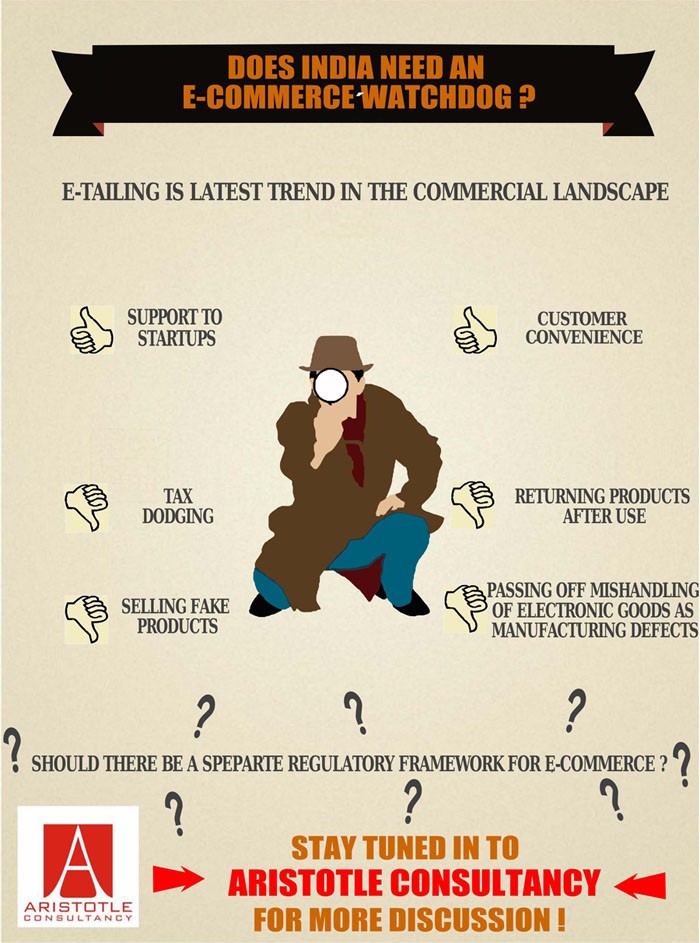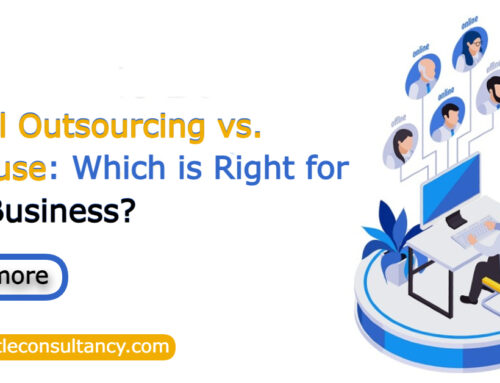 E-tailing is the new trend in the commercial landscape. The virtual shop is the latest fashion in vogue that businessmen are rapidly adopting. Be it groceries, apparel, stationery or electronics, every product can be purchased on the ubiquitous internet. The service industry is fast catching up, with even personalized services such as doctors’ opinion can be availed over the internet. The e-commerce arena is witnessing a big bang of sorts. Can this big bang be allowed to swell uncontrolled on the pretext of economic prosperity or does it need to be regulated? Sure, e-commerce has brought about a lot of convenience by bringing favourite shopping destinations closer to the buyer, virtually of course. Benefits of products and services can be experienced at any time and any place according to the customers’ convenience. The e-commerce landscape has unquestionably made the consumer the king. Startups have been the greatest beneficiaries of the e-commerce boom, making it possible for these bootstrapped entities to commercialize their business idea with the support of the inexpensive internet serving as a pillar. If the realm of e-commerce is so promising and rosy, why is there a need for a regulator in the first place? The simple answer to this is when any domain has a lot of stakeholders involved, especially where majority of them are naive consumers, it becomes obligatory to institute an ombudsman to ensure interests remain uncompromised. TRAI, IRDA and RBI were established keeping in mind the same purpose. But there are two sides to this coin as well. Since the e-commerce model is relatively new, there are no clear cut contours of this business dimension. This allows for a lot of leeway with respect to business practices, allowing these firms to utilize loopholes in the existing regulatory framework to their benefit. Of late, there has been a spurt in issues coming to light against e-commerce enterprises on various matters such alleged dodging of taxes, selling fake products, ignorance of FDI rules, consumer grievances etc., all of which have brought this new age ecosystem under the scanner of the regulatory authorities. Amazon is currently engaged in a tussle with the Karnataka state government over alleged tax evasion. Cab aggregator Uber was recently found flouting RBI’s two-step user authentication norm. Snapdeal recently had an FIR launched against it for selling prescription drugs online. Customers have often complained of receiving fake products when ordered from online portals. These instances forces one to ponder upon whether e-commerce should be allowed to boom unchecked. But consumers are not the only ones whose interests are at stake. In fact, the market has no dearth of astute beings taking advantage of easy return policies offered by e-tailers. There have been sporadic instances of buyers utilizing durables like dresses, cameras, phones and other electronics for a few days and then returning these once their purpose has been served, under the easy return scheme. Improper handling of phones and MP3 players, causing electronic damage, is easily passed off as manufacturing defect by consumers and returned to unsuspecting e-commerce retailers. Clearly, this model is being used as per their own convenience by both players, consumers as well as sellers. It is evident that e-commerce has matured into an independent marketplace. Public policy experts may get together with e-commerce business honchos and in consonance with each other, debate and decide whether the existing norms sufficiently accommodate this fast proliferating ecosystem or not. In doing so, experts must ensure that interest of none of the stakeholders is compromised. The government is slowly making progress with a recent development stating that e-commerce companies functioning as marketplaces will now have to provide monthly sales data for vendors registered on their platform. This has been done to ensure that no tax evasion is indulged into. India still has a long way to go when it comes to protecting the vulnerable consumer community and ensuring business practices are undertaken in accordance with the law. So should there be a separate regulatory framework for e-commerce? Well, that is for the government to decide. Whatever be the decision, it must be ensured that the e-commerce environment remains conducive for business activity and at the same time regulatory grey areas, which allow various players in the field to take advantage of loopholes, should be minimized.
E-tailing is the new trend in the commercial landscape. The virtual shop is the latest fashion in vogue that businessmen are rapidly adopting. Be it groceries, apparel, stationery or electronics, every product can be purchased on the ubiquitous internet. The service industry is fast catching up, with even personalized services such as doctors’ opinion can be availed over the internet. The e-commerce arena is witnessing a big bang of sorts. Can this big bang be allowed to swell uncontrolled on the pretext of economic prosperity or does it need to be regulated? Sure, e-commerce has brought about a lot of convenience by bringing favourite shopping destinations closer to the buyer, virtually of course. Benefits of products and services can be experienced at any time and any place according to the customers’ convenience. The e-commerce landscape has unquestionably made the consumer the king. Startups have been the greatest beneficiaries of the e-commerce boom, making it possible for these bootstrapped entities to commercialize their business idea with the support of the inexpensive internet serving as a pillar. If the realm of e-commerce is so promising and rosy, why is there a need for a regulator in the first place? The simple answer to this is when any domain has a lot of stakeholders involved, especially where majority of them are naive consumers, it becomes obligatory to institute an ombudsman to ensure interests remain uncompromised. TRAI, IRDA and RBI were established keeping in mind the same purpose. But there are two sides to this coin as well. Since the e-commerce model is relatively new, there are no clear cut contours of this business dimension. This allows for a lot of leeway with respect to business practices, allowing these firms to utilize loopholes in the existing regulatory framework to their benefit. Of late, there has been a spurt in issues coming to light against e-commerce enterprises on various matters such alleged dodging of taxes, selling fake products, ignorance of FDI rules, consumer grievances etc., all of which have brought this new age ecosystem under the scanner of the regulatory authorities. Amazon is currently engaged in a tussle with the Karnataka state government over alleged tax evasion. Cab aggregator Uber was recently found flouting RBI’s two-step user authentication norm. Snapdeal recently had an FIR launched against it for selling prescription drugs online. Customers have often complained of receiving fake products when ordered from online portals. These instances forces one to ponder upon whether e-commerce should be allowed to boom unchecked. But consumers are not the only ones whose interests are at stake. In fact, the market has no dearth of astute beings taking advantage of easy return policies offered by e-tailers. There have been sporadic instances of buyers utilizing durables like dresses, cameras, phones and other electronics for a few days and then returning these once their purpose has been served, under the easy return scheme. Improper handling of phones and MP3 players, causing electronic damage, is easily passed off as manufacturing defect by consumers and returned to unsuspecting e-commerce retailers. Clearly, this model is being used as per their own convenience by both players, consumers as well as sellers. It is evident that e-commerce has matured into an independent marketplace. Public policy experts may get together with e-commerce business honchos and in consonance with each other, debate and decide whether the existing norms sufficiently accommodate this fast proliferating ecosystem or not. In doing so, experts must ensure that interest of none of the stakeholders is compromised. The government is slowly making progress with a recent development stating that e-commerce companies functioning as marketplaces will now have to provide monthly sales data for vendors registered on their platform. This has been done to ensure that no tax evasion is indulged into. India still has a long way to go when it comes to protecting the vulnerable consumer community and ensuring business practices are undertaken in accordance with the law. So should there be a separate regulatory framework for e-commerce? Well, that is for the government to decide. Whatever be the decision, it must be ensured that the e-commerce environment remains conducive for business activity and at the same time regulatory grey areas, which allow various players in the field to take advantage of loopholes, should be minimized.
Learn more about accounting outsourcing services at Aristotle Consultancy.
Does India Need an E-Commerce Regulatory Authority?
One Comment
Comments are closed.







Very nice article !